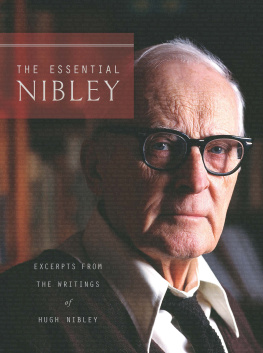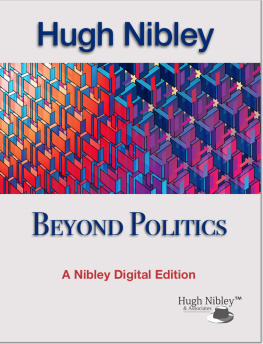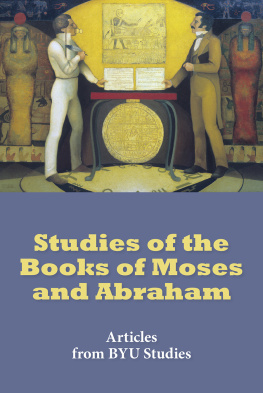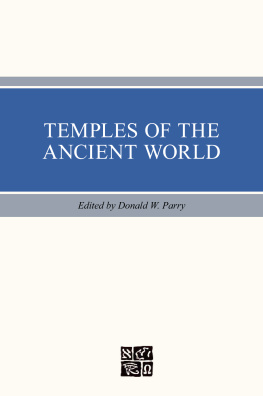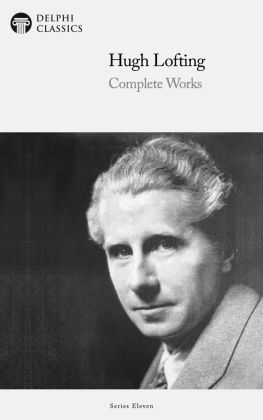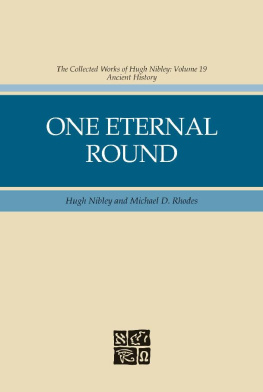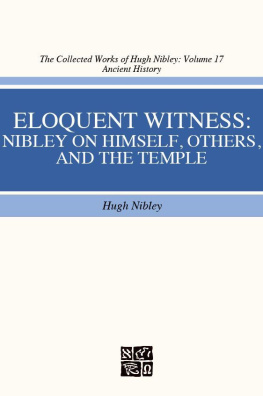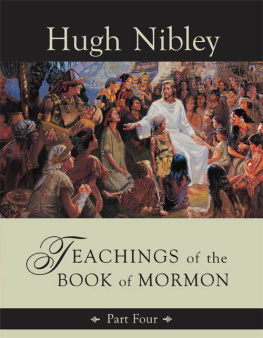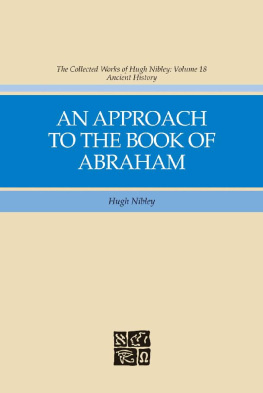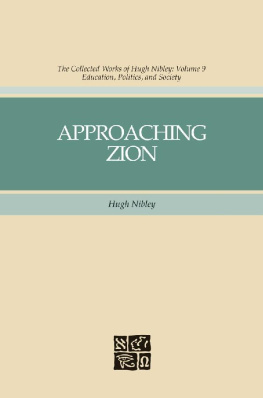The Essential Nibley
Excerpts from the Writings of Hugh Nibley
Marvin R. VanDam
2014 Hugh Nibley & Associates, L.C..
All rights reserved. No part of this book may be reproduced in any form or by any means without permission in writing from the publisher, Deseret Book Company (permissions@deseretbook.com), P.O. Box 30178, Salt Lake City Utah 84130. This work is not an official publication of The Church of Jesus Christ of Latter-day Saints. The views expressed herein are the responsibility of the author and do not necessarily represent the position of the Church or of Deseret Book. Deseret Book is a registered trademark of Deseret Book Company.
Deseret Book is a registered trademark of Deseret Book Company.
Visit us at DeseretBook.com
Library of Congress Cataloging-in-Publication Data
Nibley, Hugh, 19102005, author.
[Works. Selections (VanDam)]
The essential Nibley / compiled and edited by Marvin R. VanDam.
pages cm
Includes bibliographical references and index.
ISBN 978-1-60907-903-1 (paperbound)
1. The Church of Jesus Christ of Latter-day SaintsDoctrines. 2. Nibley, Hugh, 19102005. 3. Mormon ChurchDoctrines. I. VanDam, Marvin R., editor of compilation. II. Title.
BX8635.3.N53 2014
289.3dc232014003952
Printed in the United States of America
R.R. Donnelley, Harrisonburg, VA
10 9 8 7 6 5 4 3 2 1
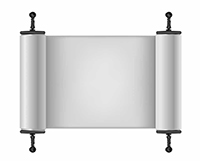
Key to Abbreviations
The following abbreviations are used for the volumes of the Collected Works of Hugh Nibley quoted in The Essential Nibley.
| ABM | An Approach to the Book of Mormon |
| AE | Abraham in Egypt |
| ASRR | Ancient State: The Rulers and the Ruled |
| AZ | Approaching Zion |
| EP | Enoch the Prophet |
| EW | Eloquent Witness: Nibley on Himself, Others, and the Temple |
| LD/WJ/J | Lehi in the Desert/The World of the Jaredites/There Were Jaredites |
| MEC | Mormonism and Early Christianity |
| MJSP | The Message of the Joseph Smith Papyri |
| OTRS | Old Testament and Related Studies |
| PBM | The Prophetic Book of Mormon |
| SC | Since Cumorah |
| TC | Temple and Cosmos |
| TCSB | Tinkling Cymbals and Sounding Brass |
| WP | The World and the Prophets |
EDITORIAL NOTES
Sources quoted by Nibley are cited in the original Collected Works books but are not cited again in this overview book, with the exception of scripture references, which are cited parenthetically. Refer to the cited volume of the Collected Works for source information.
Editorial comments and textual clarifications are {italicized within stylized brackets} to distinguish between any original insertions, which may also appear in brackets but in regular type.
In some cases, quotations may not be sequential from the original text. In those cases, the relevant citation (volume abbreviation, page number) will be cited at the end of each quotation.
In the case that a quotation comes from an invented dialogue, such as from There Were Jaredites (in Lehi in the Desert/The World of the Jaredites/There Were Jaredites [Volume 5 of the Collected Works]), quotation marks which marked dialogue have been deleted; any remaining quotation marks indicate Nibley quoting scripture or other documents.

Helpful Definitions
Apocalypticforecasting the ultimate destiny of the world
Apocrypha1. books included in the Septuagint {a Greek version of the Jewish Scriptures redacted in the third and second centuries b.c. by Jewish scholars and adopted by Greek-speaking Christians} and the Vulgate {a Latin version of the Bible authorized and used by the Roman Catholic Church} but excluded from the Jewish and Protestant canons of the Old Testament; Early Christian writings not included in the New Testament; {According to Nibley, the Apocrypha are a large body of writings, Jewish and Christian, existing alongside the Bible, each of which has at some time or other been accepted as true revealed scripture by some Christian or Jewish group (see chapter 3, Ancient Documents)}
Copta member of the traditional Monophysite Christian church {holding the doctrine that Christ has a single inseparable nature that is at once divine and human rather than having two distinct but unified natures} originating and centering in Egypt
Copticof or relating to the Copts, their liturgical language, or their church
Eschatology{pronounced eskatology} a belief concerning death, the end of the world, or the ultimate destiny of humankind; specifically: any of various Christian doctrines concerning the Second Coming, the resurrection of the dead, or the Last Judgment; {More broadly, according to Nibley: that which sees and judges everything in terms of a great eternal plan (OTRS, 1)}
Gnosisesoteric {special, rare, or unusual} knowledge of spiritual truth held by the ancient Gnostics to be essential to salvation
Gnosticismthe thought and practice especially of various cults of late pre-Christian and early Christian centuries distinguished by the conviction that matter is evil and that emancipation comes through gnosis
Historicityhistorical actuality
Pseudepigraphaany of various pseudonymous or anonymous Jewish religious writings of the period 200 b.c. to a.d. 200; especially: one of such writings (as the Psalms of Solomon) not included in any canon of biblical scripture
Note: Definitions not within brackets are from Merriam-Websters Collegiate Dictionary, 11th Edition (Springfield, MA: Merriam-Webster, 2005).

Introduction
Hugh W. Nibleys remarkable half-century of research, teaching, and writing made him a legend in his day. He wrote powerfully in defense of the calling of the Prophet Joseph Smith, the Restoration of the gospel and church of Jesus Christ, and the truth and historical reality of Joseph Smiths translations of the Book of Mormon, Moses, and Abraham. His writings are a trove of precious historical and doctrinal nuggets that are fascinating and inspiring to those who search for gospel truth and understanding. In the face of Nibleys profound insight into a scriptures meaning or application, one is often surprised by its obviousness and simplicity. In conscious compliance with the Lords commandment to study and learn, and become acquainted with all good books, and with languages, tongues, and people (D&C 90:15), Hugh Nibley left the world a body of research, writings, and speeches of inestimable value.
Like many, I am a devoted gospel student, but not a scholarbut one does not need to be a learned scholar to appreciate Nibley. Admittedly, his attention to scholarly details can occasionally challenge all but the most committed. The nineteen volumes of the Collected Works of Hugh Nibleywhich by no means include all that he wrote and spoketotal 9,608 pages of information-dense text. My purpose with

